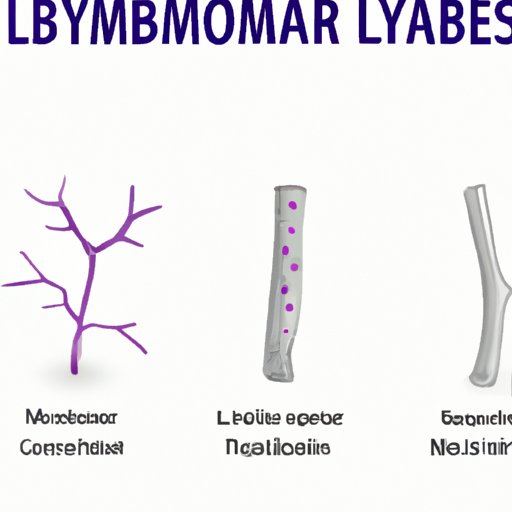
Overview of the Lymphatic System and its Function
The lymphatic system is an extensive network of vessels and organs that transports lymph, a colorless fluid that contains white blood cells, throughout the body. The lymphatic system is responsible for helping to keep our tissues healthy by removing toxins from the body, transporting nutrients to cells, and maintaining tissue fluid balance.

Definition of the Lymphatic System
The lymphatic system is composed of a number of organs, including the lymph nodes, tonsils, spleen, thymus, and bone marrow, as well as a network of vessels that transport lymph throughout the body. The main function of the lymphatic system is to transport lymph, a clear fluid that contains white blood cells, from the tissues back to the bloodstream.
Functions of the Lymphatic System
The primary functions of the lymphatic system are to remove toxins and waste materials from the tissues, transport nutrients to cells, and maintain tissue fluid balance. It also plays an important role in the immune system by producing antibodies, removing pathogens, and regulating inflammation.
Types of Cells that Make Up the Lymphatic System
The lymphatic system is composed of several types of cells, including lymphocytes, macrophages, monocytes, and plasma cells. Lymphocytes are white blood cells that play an important role in the immune system by recognizing and responding to foreign substances. Macrophages are large cells that ingest and destroy bacteria and other foreign particles. Monocytes are white blood cells that help to fight off infections. Plasma cells are specialized white blood cells that produce antibodies.

How the Lymphatic System Transports Fluids and Metabolites
The lymphatic system consists of a network of vessels that transport lymph throughout the body. These vessels contain valves that regulate the flow of lymph and prevent it from flowing backwards. The lymph is then transported to the lymph nodes, where it is filtered and cleaned before being returned to the bloodstream. The lymphatic capillaries are tiny vessels that absorb excess fluid from the tissues and return it to the lymphatic system.
Role of the Lymphatic System in the Immune System
The lymphatic system plays an important role in the immune system by producing antibodies, which are proteins that recognize and bind to foreign substances, such as bacteria and viruses. The lymphatic system also helps to remove pathogens from the body, and it helps to regulate inflammation, which is the body’s response to injury or infection.

How the Lymphatic System Helps to Keep Tissues Healthy
The lymphatic system helps to keep tissues healthy by removing toxins from the tissues, transporting nutrients to cells, and maintaining tissue fluid balance. It also helps to filter out bacteria and other foreign particles from the lymph before it is returned to the bloodstream.
Disorders of the Lymphatic System
There are several disorders that affect the lymphatic system, including lymphedema, primary immunodeficiency, and lymphoma. Lymphedema is a condition in which the lymph vessels become blocked, preventing the proper drainage of lymph from the tissues. Primary immunodeficiency is a genetic disorder that affects the body’s ability to fight off infections. Lymphoma is a type of cancer that affects the lymphatic system.
Therapies Used to Treat Disorders of the Lymphatic System
Treatment for disorders of the lymphatic system can involve surgery, medication, physical therapy, and lifestyle changes. Surgery may be used to remove blockages in the lymphatic vessels. Medication can be used to reduce swelling and reduce pain. Physical therapy can help to improve mobility and reduce swelling. Lifestyle changes, such as avoiding tight clothing and high impact activities, can also help to reduce symptoms.
The lymphatic system is a complex network of vessels and organs that plays an important role in keeping our tissues healthy. By understanding how it works, we can better appreciate its vital role in our health and well-being.
(Note: Is this article not meeting your expectations? Do you have knowledge or insights to share? Unlock new opportunities and expand your reach by joining our authors team. Click Registration to join us and share your expertise with our readers.)
